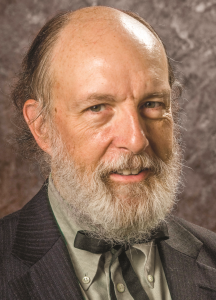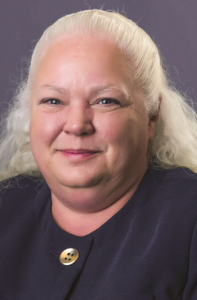A Good Debate: Beyond Gridlock
Cross-Exam
Winter 2018
Each quarterly issue of Citizens League Voice will feature a section that involves bringing people together to share their differing opinions on a timely issue.
We started with Just the Facts, designed to provide objective context for a specific question or area of disagreement. That was followed by Opening Arguments, written by policymakers, academics, and engaged community members representing a wide range of opinion and expertise.
Now, a Cross-Exam of each contributor. Conducted by the editors, this is an effort to further explore the nuance of each argument and provide a model for thoughtful questioning.
Cross-Exam
Questions for Laura Monn Ginsburg
THE CONCLUSION
Anticipatory governance ensures equitable access to free-market innovations.
THE ARGUMENTS
- The way people move around is changing rapidly.
- A statewide transit plan requires institutional foresight.
- Private enterprise is primarily accountable to the bottom line.
- Good government defines outcomes and avoids disruption.
- Entrepreneurs are appropriately fast. Elected officials are necessarily slow.
Q: Is it your position that affordable transit is a right?
Q: Given how divided the state legislature is on mobility issues, isn’t expecting compromise in time to create a statewide plan unrealistic?
“I think that too often the word inefficient is used as a pejorative term for due process. It’s important to take time for assessment and feedback and listening.”
Q: How do you respond to the argument that the free market is more nimble, innovative, and efficient than the government?
LMG: I can’t disagree that the free market in many ways is inherently more efficient. But I think that too often the word inefficient is used as a pejorative term for due process. It’s important to take time for assessment and feedback and listening, as opposed to moving as fast as you can to find the best thing in the heat of the moment. The free market ultimately wants to sell you something.
Q: There is a growing sense that trains and other “big-box” mobility solutions will be made obsolete by driverless cars. If that technology were destined to move us, wouldn’t private enterprise be the best driver?
LMG: Self-driving cars are a fantastic technology, with great potential to supplement systems, but for me transit is also about environmental efficiency. And having more cars on the road to get people from their beginning-to-end destinations, instead of moving them to and from bus or train routes, doesn’t seem very realistic or make much economic sense. These cars are far from a panacea when it comes to affordability, and I fail to see how individual vehicles are going to address the needs of people whose voices are often not at the table.
Questions for Randal O’Toole
THE CONCLUSION
Privatization is the most equitable way to move people efficiently and affordably.
THE ARGUMENTS
- Fifty years ago, buses and trains were private and profitable.
- Subsidized public systems increase costs and decrease usage.
- Private systems thrive where customer need is greatest.
- Government contracts are prone to waste and political corruption.
- Innovation is most effective when unfettered by regulation.
Q: What role, if any, should government play in ensuring that people can move around?
RO: Only about 1 or 2 percent of the populace is going to ride transit to work. So even if you figure out a way to increase that a little bit, you’re not going to be helping a lot of people. You should take that money and relieve the gridlock, relieve the congestion, so that people can get to work without facing congestion. Not just people who are willing to ride transit, but everybody. This is the problem: We’re being forced to see this as transit versus highways. And we should see it as, What’s the most cost-effective way of relieving congestion? And the answer is never going to be transit. The answer is going to be things like coordinating traffic signals, taking care of bottlenecks, occasionally adding lanes, and using things like [express] lanes, which are already being used on some highways in the Twin Cities area. There are a lot of different ways of relieving congestion that work. Transit is not one of them.
Q: One concern is that there’s a spatial disconnect between where jobs are and where people live. Don’t trains, buses, and other forms of public transit make it easier to attract and retain employees?
Q: What incentive does the free market have to provide affordable service to people in need?
RO: What’s happened is that transit once was justified based on providing a service for people who couldn’t drive, and there aren’t very many of those people anymore. So now transit is justified based on getting people who can drive out of their cars, and that’s a lot more expensive. If we want to provide mobility for people who can’t afford a car, the most effective way of doing that, by far, would be to give them a low-interest loan so they can buy their first used car. It turns out the data show that getting an unemployed person a car is more likely to help them get and keep a job than getting them a high school diploma if they don’t have a high school diploma.
Q: If driverless cars become the norm, though, won’t that sort of technology price people out of the market?
RO: Here’s the thing: Henry Ford figured out that there’s a bigger market of people who don’t have a lot of money than there is of people who are really rich, and so up until Henry Ford’s Model Ts, most cars were made for the very rich. As of 1913, only about 4 percent of American families had a car. Henry Ford started making cars really cheap and he became a billionaire. By 1927, over half of American families had a car, and most of them were Model Ts. So, the market works for poor people much better than the political system, because the political system is dependent on who has the political power, and guess who has the political power? Wealthy people. So, you’re going to be much better off if you’re low-to-moderate income if you’re dealing in a market system than if you’re dealing in a political system.
“Getting an unemployed person a car is more likely to help them get and keep a job than getting them a high school diploma.”
Questions for Mary Liz Holberg
THE CONCLUSION
Politics as usual guarantees gridlock on our roads and at the state legislature.
THE ARGUMENTS
- Battles over buses and light rail have polarized lawmakers.
- Mobility issues affect everyone in Minnesota.
- Transit advocates need to consider performance standards.
- Transit skeptics need to participate in finding solutions.
- Both sides must think outside the lines and find common ground.
Q: Is it fair that many might lump you in the “anti-transit” camp because, as a rule, you haven’t supported rail?
MLH: I believe we should invest in the most cost-effective options to get the job done. I’ve been accused of being anti-rail and anti-transit, because that’s easy for people to do. But I think that in general, and historically, Republicans in Minnesota have been termed anti-transit and not given credit for their support of bus investments. I think the point your question is missing, though, is that I don’t believe you can separate transit from other modes of transportation. In other words, transit is about roads, too. So, if you totally segment the discussion and only talk about other forms of transit besides cars, then you’re leaving a lot of effective solutions out of the discussion.
Q: Have you ever seen an issue involving something so many see as a public utility become this divisive?
“In virtually every other funding area, different interest groups take what they can get when they can get it and come back and fight another day.”
Q: What are the biggest misconceptions each side has of the other?
Q: What needs to happen to move past the political gridlock? Who needs to be at the table?
MLH: First of all, you have to get representatives from greater Minnesota and the business community more involved. Because there are so many camps, I believe you also need a balance of transit and roads people. It would also be nice to look at the entire pot of money for transportation, roads, bridges, transit, Metro Mobility, Dial-a-Ride, et cetera. I mean there’s a whole kettle of components that make up transportation across the state. So you need a group around the table that can fairly look at all these components and then look at some kind of meaningful distribution of funds across the board. When you have the right cross-section of people at the table, then you will have a greater understanding of what the needs are. And I would say the same thing to both sides: that there must be an attempt to find some sort of balance. Not everybody’s going to get everything they want, but most people might get what they need. There has to be a middle ground.




